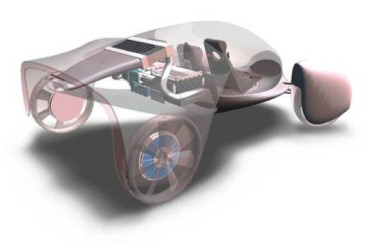This is what Gene Franz, director of development for digital signal processors at Texas Instruments, said during an event to launch four new processors in Tel Aviv, describing the future developments that will be based on these types of processors
About ten years ago I wrote in "Haaretz" about a car without a driver, named Oskar, that drove on the roads of Germany. Her entire trunk was filled with the guts of a supercomputer in terms of those days. Today it is apparently possible to reduce the size of a computer to a single chip. However, a robot race held about a year ago in the California deserts still failed, with no robot vehicle surviving more than a few kilometers.
Cars that operate without the need for a human driver are expected to appear in 2020, said Gene Franz, a principal partner at Texas Instruments and director of business development for DSP in the company's semiconductor group. Franz said these things as part of a briefing for journalists held by Texas for the launch of four new digital signal processors (DSP) yesterday in Tel Aviv. Data presented at the briefing predict that the market for DSP products will reach approximately 18 billion dollars in 2009.
In the briefing, Franz reviewed the future developments in the field of DSP: "When we introduced the DSP, we moved the world of communication from analog to digital. We have made the devices wireless, and the fun part of the communication revolution is just beginning. We are now in the middle of the digital revolution in the field of entertainment."
The future, according to Franz, is the use of DSP technology to place cameras on cars: "The industry thinks that in the next decade there will be between 10 and 20 cameras on a car. When I ask people in the industry when we will see a car that drives without a driver they tell me never. I've been in the industry long enough to know that 'never' means in 20 years." He added that driverless cars are expected to appear around 2020.
Another field that is expected to have interesting developments based on DSP is the medical field, where processors will be used in hearing aids and artificial vision by placing electrodes and using a camera to transmit images to the brain of a blind person. Franz also envisioned computers that would be able to track the spread of diseases in the body and make it possible to deal with them more efficiently.
Franz also addressed the issue of security, envisioning the use of DSP to maintain security through various methods of identifying people. According to him, the field of education is also expected to benefit from developments thanks to the use of DSP.

